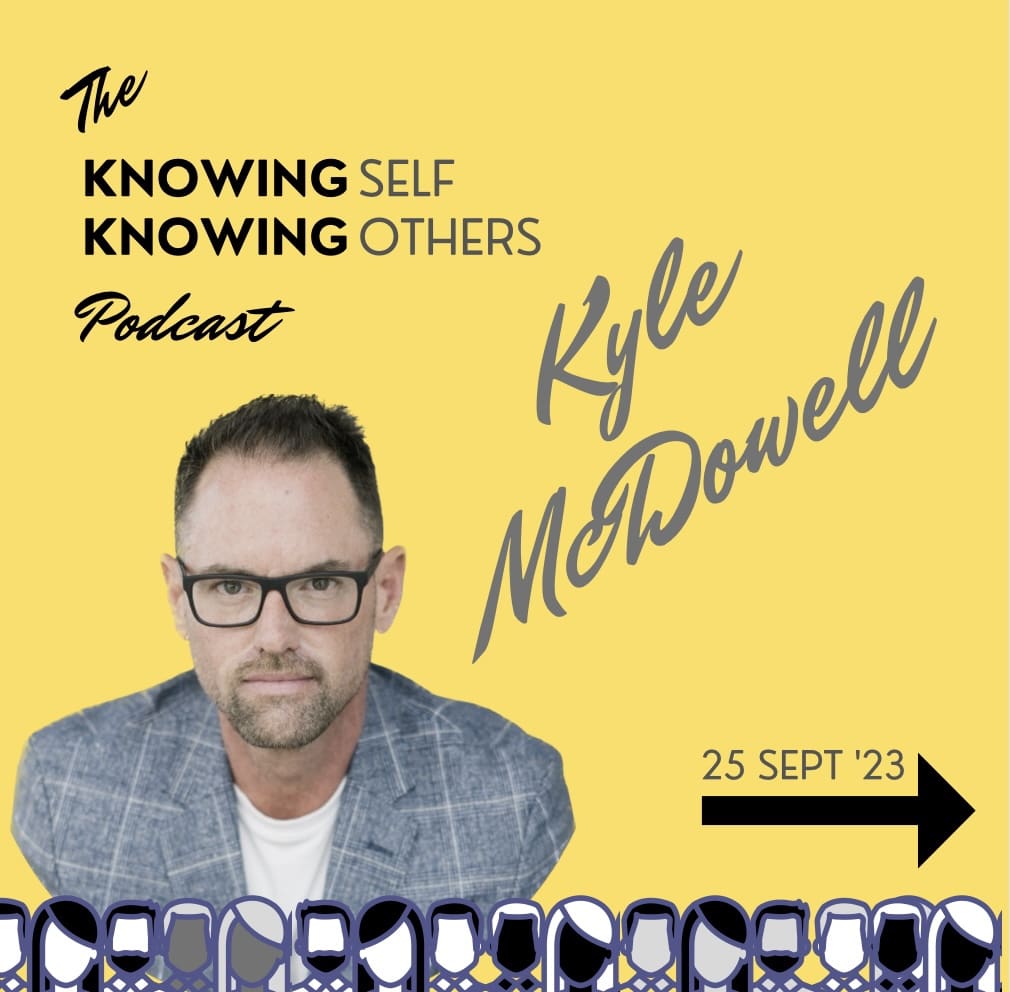In episode 32 of The Knowing Self Knowing Others Podcast, i spoke to Kyle McDowell about self-awareness, leadership, and the importance of fostering a culture of openness and dialogue within organisations.
Here are the top takeaways from our thought-provoking discussion:

1. Self-awareness is a fundamental aspect of personal and professional growth. It involves knowing not only what you know, but also what you don’t know. Being curious and open to learning is essential in developing self-awareness.
2. Building self-awareness requires putting ego aside and being willing to receive feedback. Feedback, even if it makes us vulnerable, is a necessary step in gaining a deeper understanding of ourselves and how we are perceived by others.
3. Self-awareness goes hand in hand with empathy. Self-aware leaders have the ability to understand how others perceive them and consider different perspectives. This empathy enables better decision-making and stronger relationships within teams.

4. Trust is crucial in self-awareness. Creating an environment of trust allows team members to be honest, express their opinions, and engage in healthy disagreements. Trust also encourages individuals to challenge their leaders and contribute their diverse perspectives.
5. In organisations, scale plays a significant role in self-awareness. Smaller organisations often have fewer individuals to rely on for solutions and decision-making, leading to more open discussions and disagreement. In contrast, larger organizations can foster a culture of self-preservation, where individuals avoid taking a stand and valuable viewpoints are overlooked.
6. Many organisations tend to value conformity over diverse opinions, resulting in a “vanilla approach” to doing business. In smaller settings, it is harder for individuals to hide, leading to more disagreements and varied perspectives. In larger organisations, the insulation of individuals can stifle the seeking of opinions, resulting in a lack of self-awareness and hindered innovation.
7. Leaders must embrace the “we” mentality and recognise that having a title of authority does not equate to having all the answers. Encouraging teams to challenge their leaders and provide diverse input not only fosters growth but also prevents a sense of apathy and disengagement.
8. Creating a safe space for asking questions and challenging ideas is essential. The story shared by Kyle about a colleague who challenged her leader and eventually took on a greater role highlights the positive outcomes that can arise when a safe, open dialogue is encouraged. Everyone benefits from this approach, including the organisation as a whole.
9. Authenticity and relatability are vital characteristics of great leaders. Being self-aware allows leaders to behave authentically and connect with their teams on a deeper level. This self-awareness leads to better decision-making, increased empathy, and the ability to adjust their approach based on the needs of others.
These top takeaways underscore the importance of self-awareness in leadership and organisational success. By valuing diverse perspectives, encouraging open dialogue, and fostering a culture that embraces challenges and growth, leaders can create environments that inspire innovation, engagement, and excellence within their teams.


